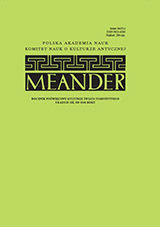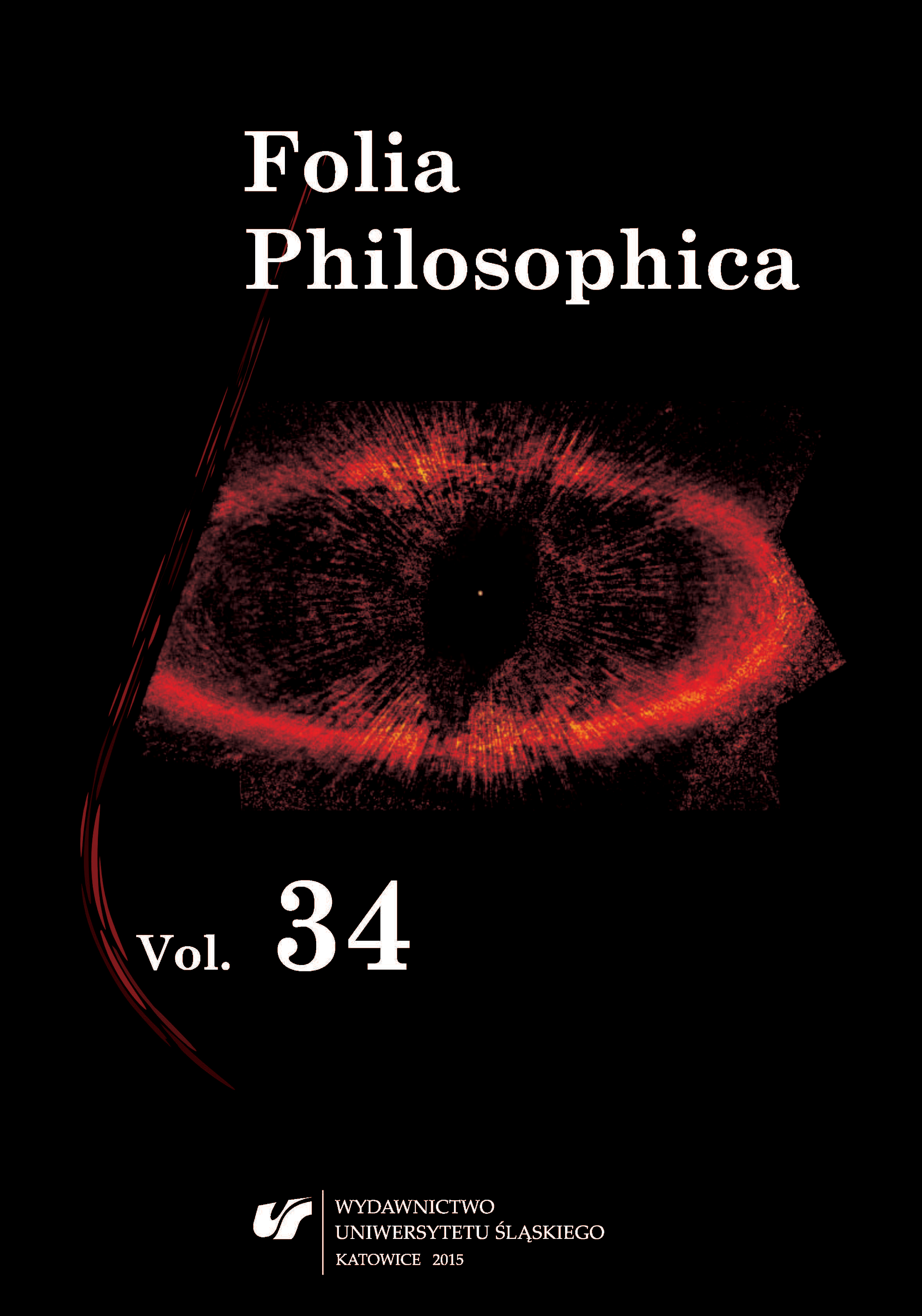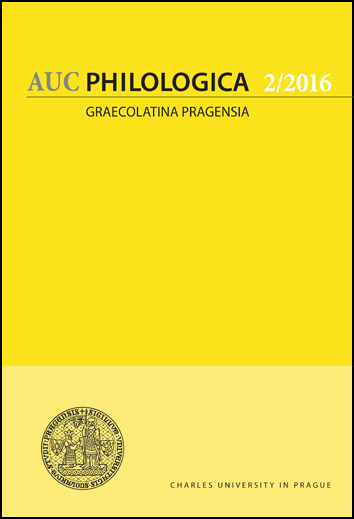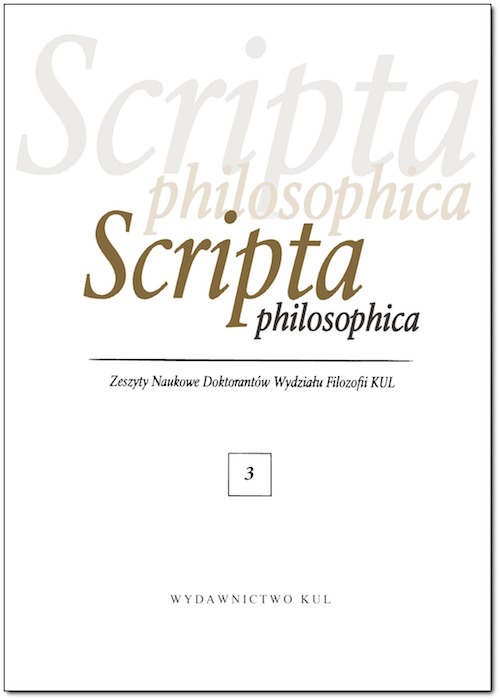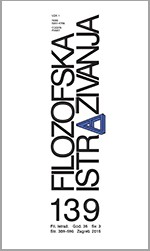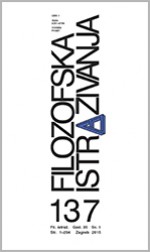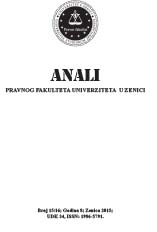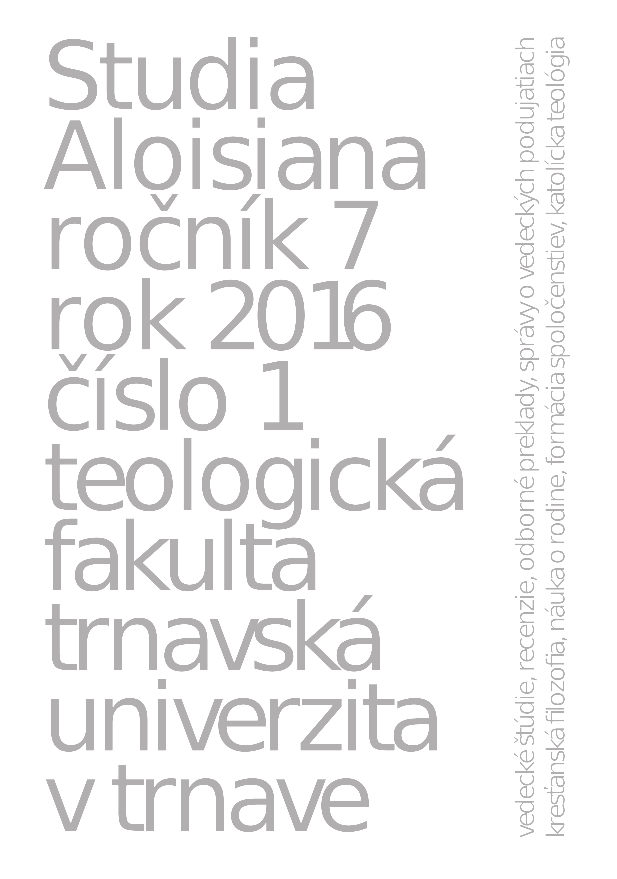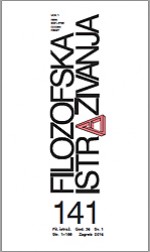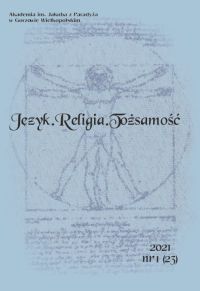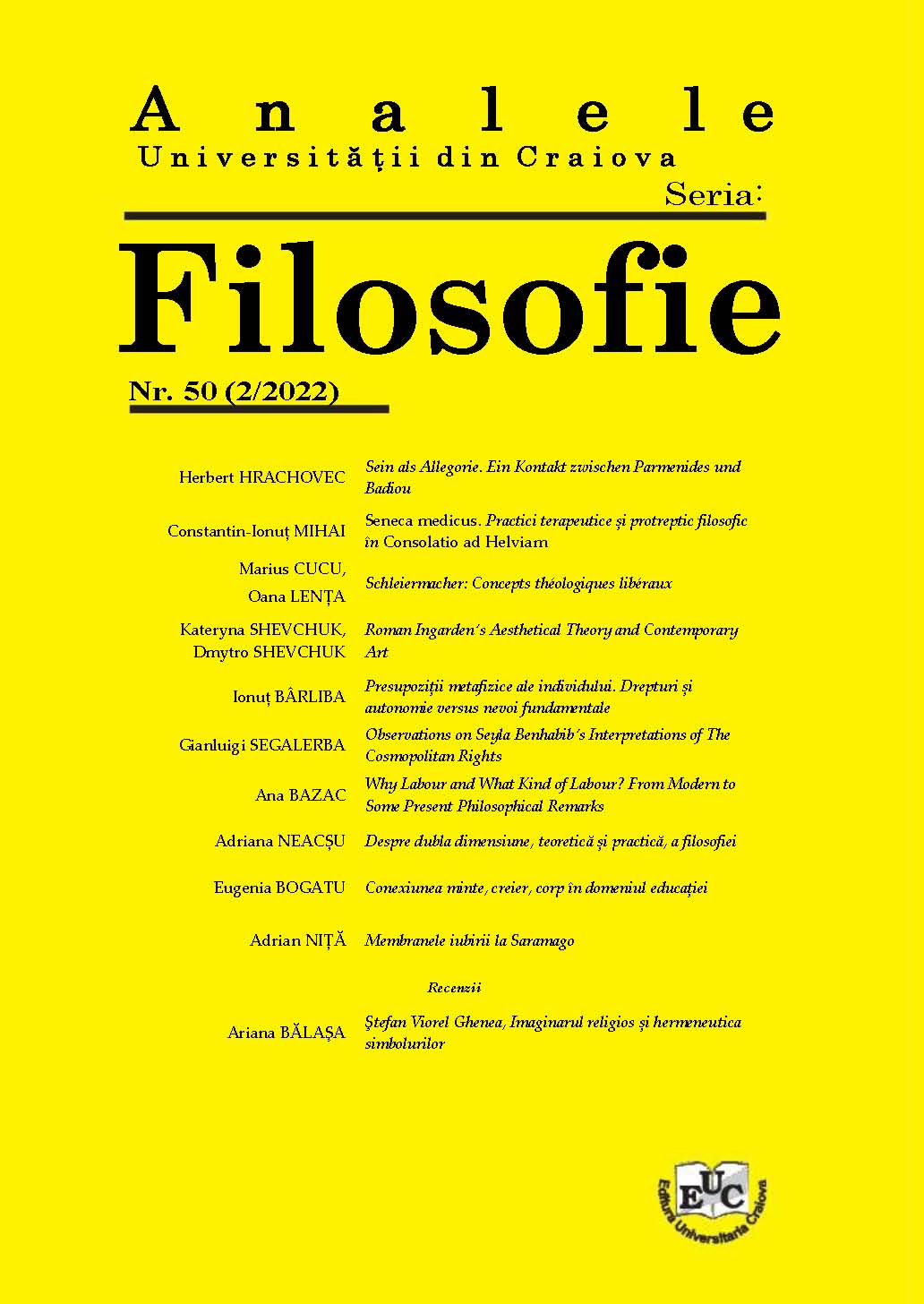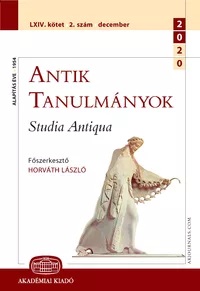Author(s): Željko Kaluđerović / Language(s): Croatian
Issue: 01/141/2016
The research in this paper focuses on two relevant and interrelated Anaximenes’ and Diogenes’ doctrines: the monistic doctrine of air as the governing principle and their animatism. The author considers the opinion of two Pre-Socratics about the aliveness, i.e. ensoulment of everything, which could be explained by the perpetual motion of air and by its observable manifestations. The first principle, as understood by Anaximenes and Diogenes, was deemed as an eternal and therefore necessarily self-caused or self-mobile, in short the soul or life (psyche). The connection of life–breath–soul–air, to which Diogenes also added the mind, was established in the ancient understanding of the life of soul and air, however, Anaximenes and Diogenes reviewed previous standpoints and philosophically perceived the analogy of the soul and the air which a man breathes in order to live. The perception and recognition that air is a cosmic equivalent of the soul, i.e. the life of man, might, nevertheless, be an important motive for the last Milesian and, perhaps, for the last physicist to choose aer as arche of everything. Furthermore, and in accordance with the hylozoistic view, which Anaximenes and Diogenes largely shared, the stuff of cosmos had to be at the same time the stuff of life. It is also possible that the dual use of the word pneuma in the second fragment (DK13B2) led Anaximenes to the parallelism and analogy of man and the cosmos. Finally, with certain modifications, Diogenes confirmed the quintessential identity of microcosm and macrocosm, i.e. the relation between “internal” air, which is the life-giving principle of human and other living beings, their souls, and “external” divine air, which governs everything and regulates everything.
More...


